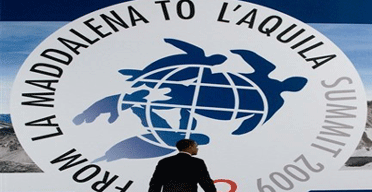PITTSBURGH, Sept 23 – One year after the start of the global financial meltdown, the leaders of the world’s biggest economies are to plan their route out of the crisis in the US city of Pittsburgh.
Coming straight in from the UN General Assembly in New York, the heads of the 19 richest countries plus the European Union will meet as the G20, shifting diplomatic focus from matters of war and peace to trade and finance.
The summit, which opens on Thursday with a dinner and continues through Friday, will be US President Barack Obama’s first chance to host a major international event and to try to turn his popularity into genuine clout.
With Japan and continental Europe beginning to edge out of recession and Britain and the United States expected to follow suit this year, the future of the world’s financial system will be at the core of the discussions.
Leaders will no doubt want to pat each other on the back for the concerted action they agreed to six months ago at the London G20 to bail out fragile banks and pour trillions of dollars into a global stimulus spending spree.
But if the world economy is indeed turning a corner, what can be done now to prevent such a disaster befalling it again?
France, Japan and Germany are beginning to think about winding down their stimulus spending as growth returns to their economies, but Britain and some others want to plough on in the hope of averting job losses.
This in turn is making China more nervous that mounting Western deficits, in particular the US deficit, will become a new source of instability and a menace to its huge dollar-denominated reserves.
European capitals, meanwhile, are pressing for greater financial regulation, in particular curbs on traders’ bonuses, in order to calm volatile markets.
Wall Street and the City of London are less keen to see their banks lose their competitive edge.
Obama’s administration has also been reluctant to impose a hard cap on pay-outs, and has instead sought to emphasise the need for banks to build up a greater cushion of capital to offset risk-taking.
Officials believe a compromise is possible, but the differences are real and France’s President Nicolas Sarkozy for one has threatened to storm out of the talks if he doesn’t get the deal he wants.
As the host and the leader of the world’s largest economy, Obama will be expected to take in the lead in attempting to broker a compromise on what may yet be the biggest set of financial reforms since the 1940s.
But the leaders and lobby groups converging on Pittsburgh, a formerly rundown steel city that has undergone its own economic transformation, are bringing with them a lengthy shopping list.
Emerging economies such as Brazil, China, India, Russia and South Africa want greater voting rights in the IMF and World Bank and billions of dollars in support to help them meet greenhouse gas emissions reduction targets.
While France and Germany would like to cap bankers’ bonuses, Italy and Australia came out Tuesday with a joint call for action against "financial speculation and market manipulation".
Meanwhile, lawmakers from France, Germany and Spain called on Obama to push for tougher action against tax havens and representatives of the world’s stock exchanges called for more "market transparency and harmonisation."
For its part, the World Trade Organisation said it would urge G20 members to make good on pledges to conclude a pact on global commerce by 2010.
Russia’s Dmitry Medvedev said simply that countries need to "more quickly reach an agreement that would be binding for all" on financial reform.
And, even in the unlikely event that the leaders manage to come up with a package that will satisfy all their members, one constituency will doubtless remain resolutely unimpressed.
Anti-globalisation protesters are expected to descend on Pittsburgh to oppose what they say is the group’s undemocratic decision making process. Several thousand police reinforcements will be waiting for them.



































